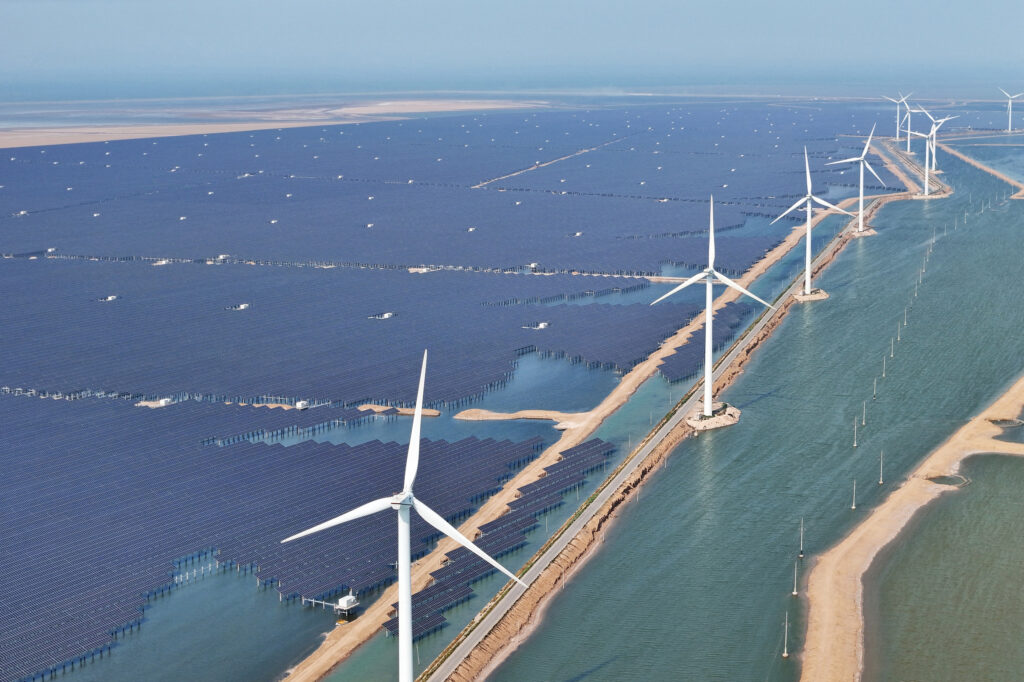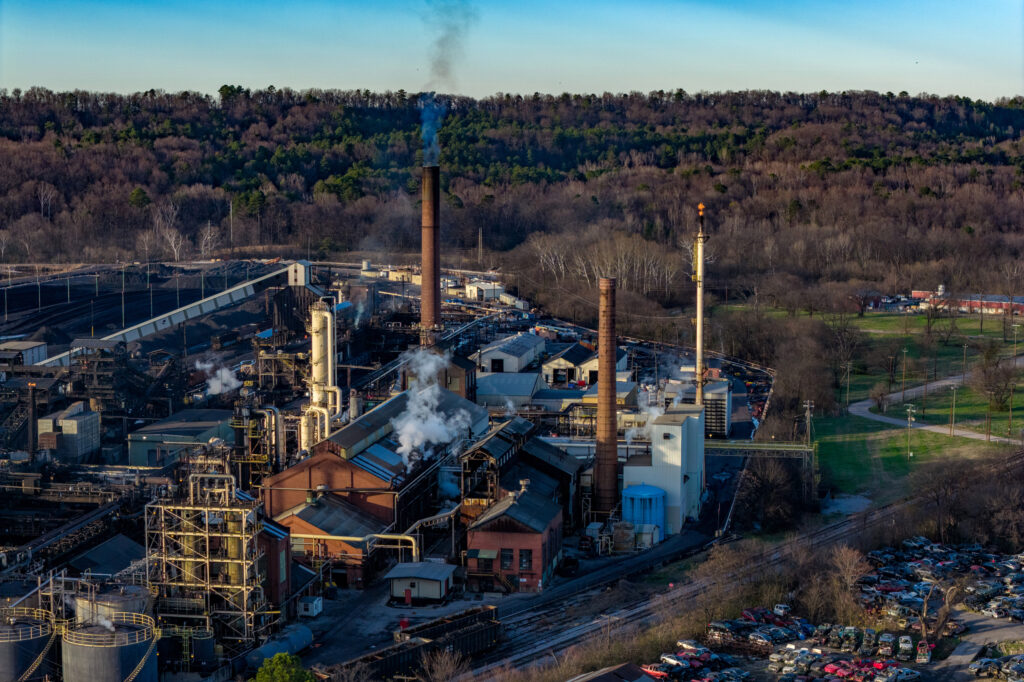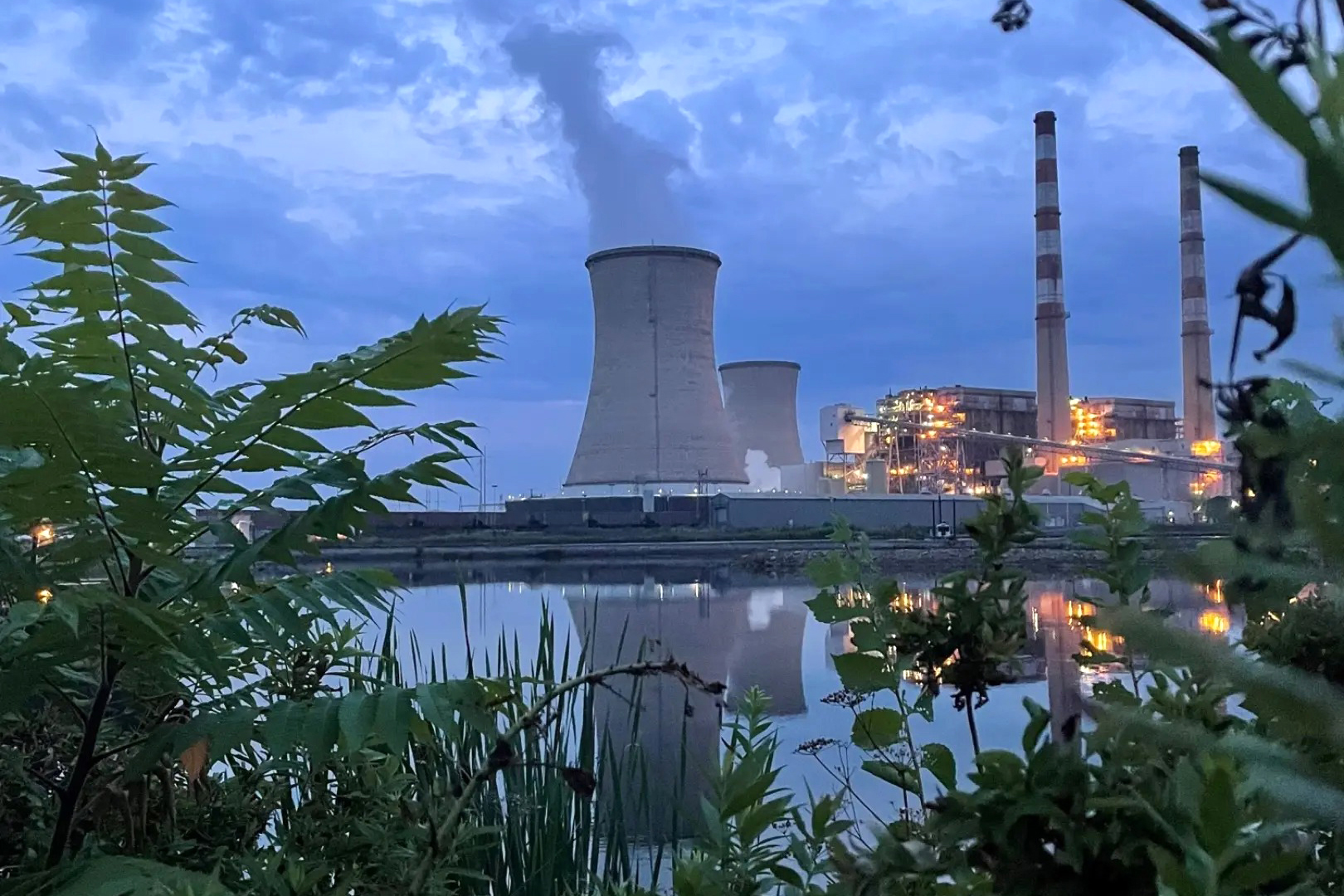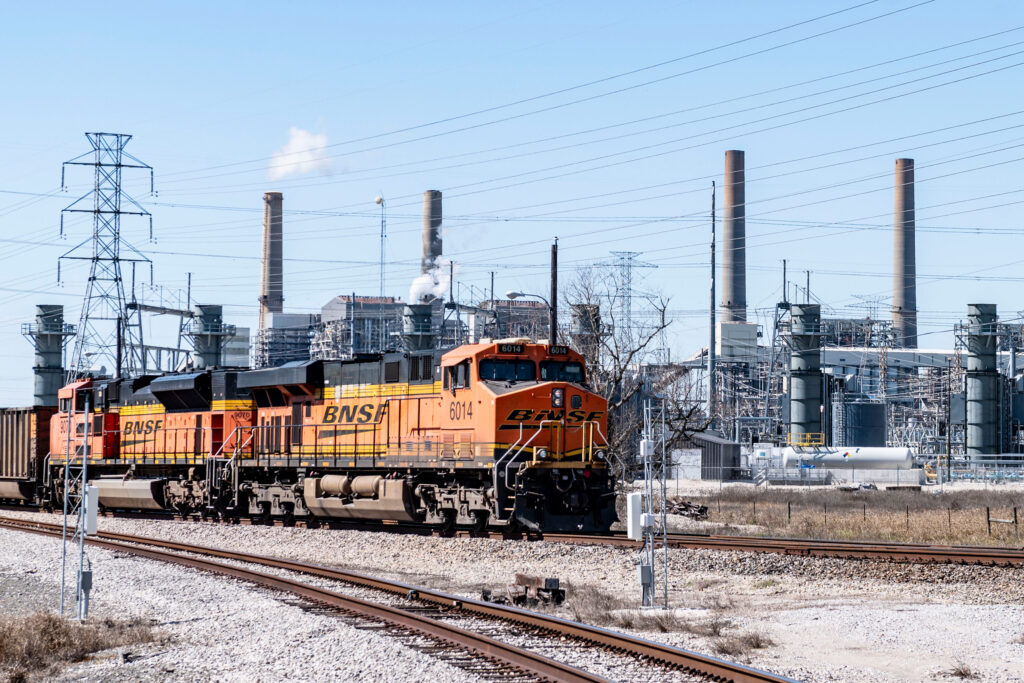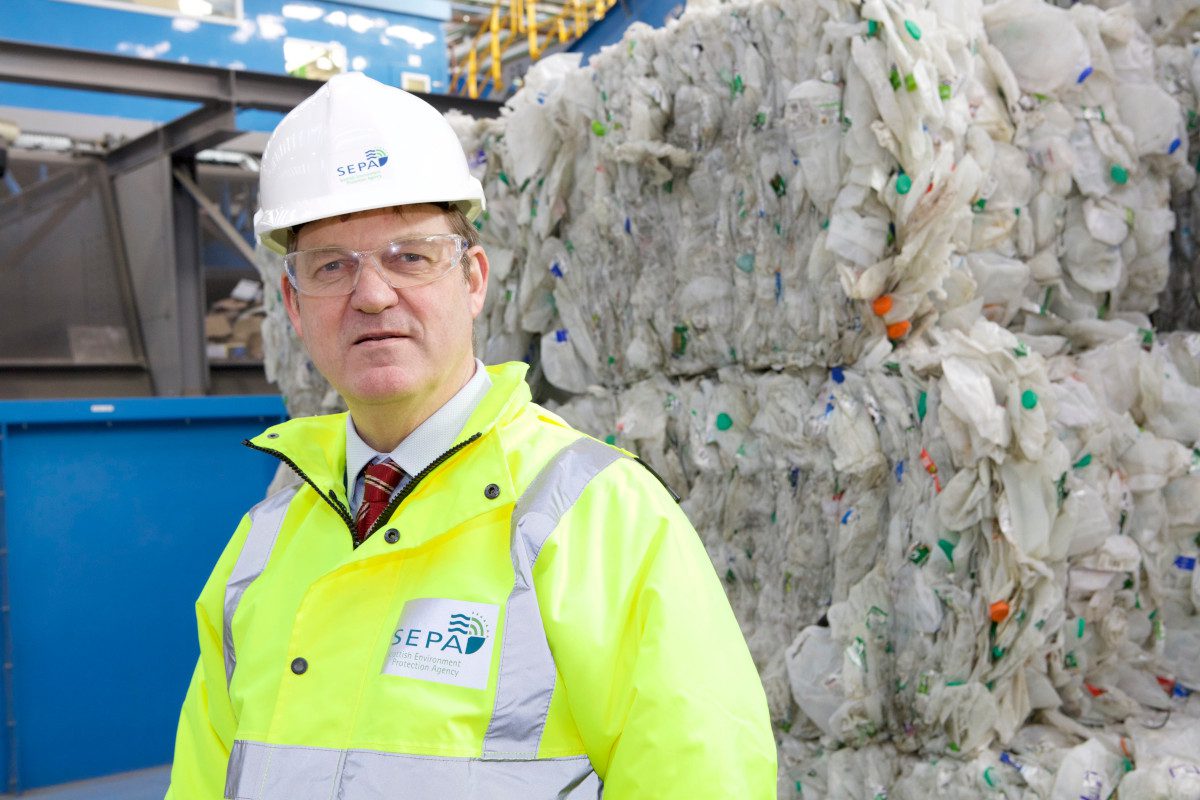This story was originally published by Capital & Main.
One of Los Angeles County’s most polluted stretches of land will soon be cleared for new development, and a full accounting of the ground’s degradation will be left largely to an oil company.
For almost 40 years in the middle of the 20th century, workers at an oil refinery with connected facilities in the neighborhood of Wilmington and nearby city of Carson buried truckloads of slop oil and acid sludge directly on site. Decades later, much of that waste is still in the soil and water table, state records show.
Phillips 66, which now owns the century-old refinery, will idle the plants by the end of the year. In some areas, the contaminated underground layer is more than 16 feet thick. Yet the only estimates for how much it will cost to tear down the refinery and clean up the fouled land is from Phillips 66, which blamed “market dynamics” for its closing.
“It is a huge problem that there is currently no disclosure requirement concerning the actual cost,” said Ann Alexander, an environmental policy consultant and principal at Devonshire Strategies. So much waste has accumulated under and around the refinery, it has formed a subterranean “lake of hydrocarbons,” she added. It could take decades to address.
Some community advocates fear Phillips 66, whose refinery produces up to 139,000 barrels of oil products a day, will offload the financial and health burdens onto the public. The company declined to answer questions, but a spokesperson said it is developing plans to continue removing polluted soil.
“We are in the preliminary planning stages for this work and cannot speculate on a definitive timeline or estimated cost of the decommissioning and remediation,” spokesperson Al Ortiz wrote in an email.
It’s rare for major oil refineries to close, but it may become more common as state and local governments increasingly turn to renewable energy — as California plans to do by subsidizing electric vehicles.
The U.S. Energy Information Administration predicts a small increase in gasoline prices due to the Phillips 66 refinery closure and of a Valero-owned refinery in the Bay Area city of Benicia next year. California officials are holding out hope that other companies will buy one or both of the refineries and keep them in operation, as lawmakers are considering whether to streamline permit approvals for refineries.
In the meantime, years of groundwater testing by regulators reveal a toxic legacy. Among the pollutants in the groundwater under the Carson and Wilmington facilities, overseen by the Los Angeles Regional Water Quality Control Board, are lead from buried waste and dangerous levels of per- and polyfluoroalkyl substances (PFAS) from foam used to fight fires at the refinery.

None degrade naturally and will likely have to be contained underground, said Danny Reible, a professor of environmental engineering at Texas Tech University who has advised governments on such cleanups. It is “effectively impossible to remove 100%” of such pollution, Reible said.
Some contaminants have leached into aquifers that are a source of drinking water. Since 2023, more than five different samplings by Phillips 66 found elevated levels of tert-butyl alcohol, a gasoline additive, in a groundwater monitoring well in a neighborhood about half a mile from the Wilmington site.
The well, which is not used for drinking water but touches an aquifer that is connected to drinking water wells in South L.A., has been tested since 2008 after regulators suspected pollution had migrated there. Phillips 66 said the tert-butyl alcohol findings are not attributable to the refinery, and the Los Angeles water board said it did not test drinking water wells for the pollutant because they are all more than a mile from the refinery.
A Los Angeles water board spokesperson said after publication of this story that the nearest active drinking water well is approximately 1.5 miles northeast from the refinery, and that tert-butyl alcohol was not detected in the most recent sampling data from that well.
As for the Carson site, two reports from 2005, one by the U.S. EPA and another by the local water board, noted its contamination of the Silverado aquifer could affect nearby drinking water wells. Sampling last year found tert-butyl alcohol in a groundwater monitoring well located at the refinery.
The polluted water is being pumped and transported to disposal sites and recycling facilities, said the Phillips 66 spokesperson. The Los Angeles water board said it has overseen the removal of 2.8 million gallons of light non-aqueous phase liquid (a layer of petroleum contamination that floats on top of water) and 317 million gallons of “impacted groundwater” — the size of 480 Olympic pools. What’s known as a biosprage system also injects pressurized air into the contaminated layer to break down some pollutants.
In the soil above the groundwater, there is a plume containing volatile organic compounds, such as benzene — a known carcinogen — and other gasoline chemicals like diisopropyl ether and methyl-tert-butyl ether, according to testing done last year. Their noxious vapors travel upwards and can seep into buildings.
This story is funded by readers like you.
Our nonprofit newsroom provides award-winning climate coverage free of charge and advertising. We rely on donations from readers like you to keep going. Please donate now to support our work.
Donate Now
Phillips 66 said it “engaged” Catellus Development Corporation and Deca Companies to evaluate the 650-acre refinery complex — the size of about 500 football fields. Neither responded to requests for interviews.
The job of regulators after the refinery closes is limited and at times unclear.
The water board will continue testing groundwater but has “no role” in the closure, spokesperson Jackie Carpenter said. It could impose fines on Phillips 66, something it has not done recently.
The Department of Toxic Substances Control told Capital & Main that it only oversees waste removed from an asphalt-capped pond at the Carson plant and a concrete-lined stormwater holding basin at the Wilmington site. Any future waste it deems hazardous would also have to be reported for tracking.
A request for comment sent to Gov. Gavin Newsom’s press office went unanswered.


Julia Giarmoleo, a spokesperson for the U.S. EPA, said states are authorized to manage solid waste and groundwater contamination. (In 2019 the EPA rejected superfund financial responsibility requirements for oil refineries.)
A lack of coordination worries environmental justice organizations, which are pressing the state of California to establish a refinery wind-down process.
It’s been a “chaotic” process, said Sylvia Arredondo, civic engagement director at Communities for a Better Environment. Instead, the state should be taking an active lead to “do it as a gradual shift.”
The costs are also uncertain.
In filings to the Securities and Exchange Commission, Phillips 66 said “asbestos abatement” and “decommissioning of assets” at its Los Angeles refinery would cost $231 million.
But decommissioning and cleaning “are two different processes with wildly different price tags,” said Faraz Rizvi, policy and campaign manager for Asian Pacific Environmental Network, which is holding a townhall meeting to gather input from nearby residents.
Refinery owners’ disclosure of those costs is mostly unregulated, and they’re allowed to presume refineries have no retirement date. That’s different from other industries with more certain retirement dates, such as nuclear, where plant owners must maintain a fund to close generating stations.
Six of the largest oil refining companies in the U.S., including Phillips 66, have actual closure costs estimated at $34 billion combined but their own estimates total less than $1 billion, according to a report by London-based think tank Carbon Tracker, which based calculations on daily output capacity.
Taxpayers could end up covering shortfalls, said Eric Stevenson, a former director of meteorology, measurement and rules at the Bay Area Air Quality Management District. “It’s the Wild West right now,” Stevenson said.
Phillips 66 reported a $908 million loss on its Los Angeles refinery in 2024. Its leadership saw a shakeup after the hedge fund led by billionaire Paul Singer bought $2.5 billion stake in the company and pushed for a focus on other assets, including a petroleum export hub near Houston.
Mass layoffs have followed Singer’s involvement at other companies, such as a petroleum refinery in Contra Costa County owned by Marathon Petroleum. About 600 employees and 300 contractors work at the Los Angeles refinery.
Phillips 66 will retain a presence in Los Angeles. In addition to importing gasoline from its Washington state refinery, it faces federal charges for dumping 790,000 gallons of oil-laden wastewater into county sewers in 2020 and 2021. A criminal trial is scheduled for next year.
Standing outside the Wilmington refinery on a recent morning, longtime resident Anita Gomez urged a group of staff members for state lawmakers not to let the company skirt its obligations.
She said action is needed to prevent repeating what has happened at other shuttered industrial facilities in the area, including a battery recycling plant in Vernon, where industries have walked away and left the cleanup of their pollution to taxpayers.
“They simply close and don’t clean up,” Gomez said.
About This Story
Perhaps you noticed: This story, like all the news we publish, is free to read. That’s because Inside Climate News is a 501c3 nonprofit organization. We do not charge a subscription fee, lock our news behind a paywall, or clutter our website with ads. We make our news on climate and the environment freely available to you and anyone who wants it.
That’s not all. We also share our news for free with scores of other media organizations around the country. Many of them can’t afford to do environmental journalism of their own. We’ve built bureaus from coast to coast to report local stories, collaborate with local newsrooms and co-publish articles so that this vital work is shared as widely as possible.
Two of us launched ICN in 2007. Six years later we earned a Pulitzer Prize for National Reporting, and now we run the oldest and largest dedicated climate newsroom in the nation. We tell the story in all its complexity. We hold polluters accountable. We expose environmental injustice. We debunk misinformation. We scrutinize solutions and inspire action.
Donations from readers like you fund every aspect of what we do. If you don’t already, will you support our ongoing work, our reporting on the biggest crisis facing our planet, and help us reach even more readers in more places?
Please take a moment to make a tax-deductible donation. Every one of them makes a difference.
Thank you,





